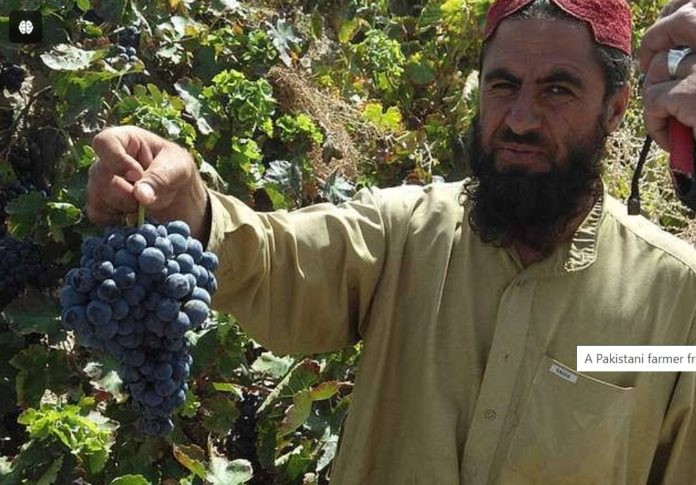KARACHI (ABC) – A lack of proper processing facilities prevents the fruit growers in Balochistan from getting high returns on their produce.
The province, with diverse climates ranging from temperate to sub-tropical and tropical, produces various fruit crops.
While apple, apricot, cherry and peach are high delta fruits, grape, olive, pistachio and pomegranate belong to the low delta of the province.
While mango is a tropical fruit, date palm is a sub-tropical one. The province produces 130 varieties of date.
According to Balochistan horticulture department, Makran produces about 0.5 million tonnes of dates annually. Some of the famous date varieties grown in Turbat and Panjgur include Begum Jangi, Kaharaba, Mozawati, Berni, Helini and Sabzo.
Mustafa Buledi, Director of Balochistan Horticulture Department, told WealthPK that fruit crops were grown over an area of 149,726 hectares in the province with a yield of about 0.9 million tonnes annually.
“Fruit production in highland Balochistan, which contains south-western region, depends on the availability of groundwater.
The region is famous for production of commercial varieties of grape such as Kishmishi and Sundarkhani.”
He said that zoning was essential for growing different fruit crops in Balochistan, as each agro-ecological zone presents specific agro-climatic condition for production of different kinds of fruit.
Grape, the low delta crop, is grown in bulk in Quetta, Pishin, Kallat, Zhob, Loralai and Mastung districts.
It may be grown in all types of climates and soils, but the experts believe that the province should be divided into zones for quality fruit production.
For instance, for high delta fruits of apricots and plums, an ‘apricot zone’ or ‘plum zone’ should be set up in upland Balochistan.
Nawaz Zehri, a fruit grower in Mastung, told WealthPK that Balochistan’s tremendous yield potential of high-quality fruits could efficiently be tapped by establishing crop specific zone and fruit processing units in the province.
“The fruit farmers need to be properly educated about the techniques of growing fruit crops, and attention needs to be paid to zoning for growth of different fruit crops.
Efficient crop management could increase the profit of local farmers by reducing the production cost.”
He said researchers were working on the production of cultivars of different fruits in Balochistan. “As a result of agriculture research, cultivars of different fruits have been introduced.
For instance, local cultivars of grapes introduced so far include Kishmishi, Sundarkhani, Haita, Hussani, Askari, Khal Chini and Khalili.
The cultivars of apple include the early-season, mid-season and late-season cultivars.
So far 52 varieties of apples, 22 of grapes, 14 of peaches, 15 of cherry, 30 of plums, 32 of apricots, 11 of olive, five of almond and four varieties each of pistachios and pomegranates have been introduced,” he said.
Nawaz said research studies had also been conducted on tropical fruit production in the province.
“New techniques for production of tropical fruits, and cost-effective practices and packages for improvement in production and new high-yielding and pest-resistant varieties of tropical fruits have also been introduced.”

